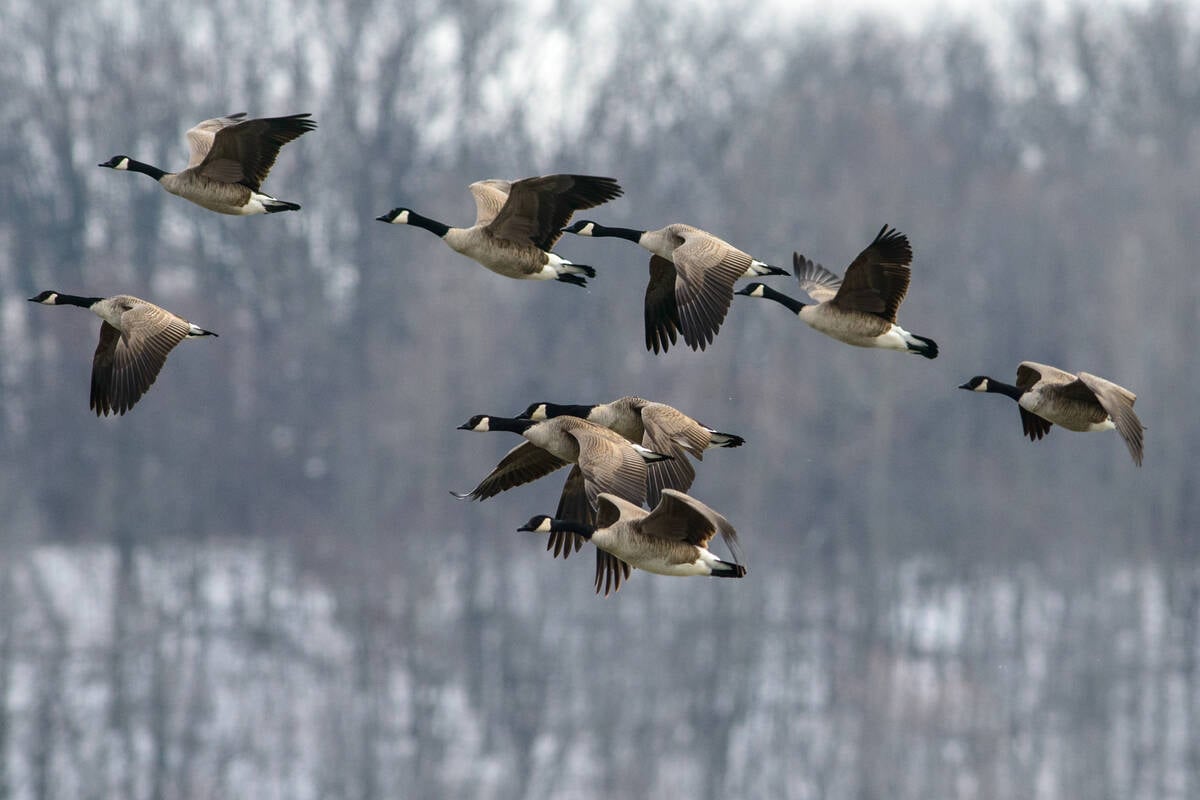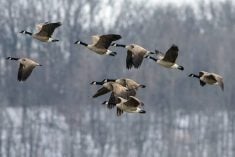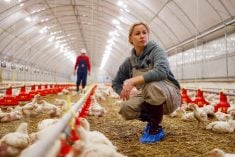The last few tough winters and poor quality forage have taken their toll on cows.
“We see a lot of skinny cows in the spring, and they are not breeding back,” said Travis Peardon of Saskatchewan Agriculture.
This year, Saskatchewan producers are being offered record books to help them monitor their calving season. The books include short pieces of information and tips to help them through the busy period.
Cow herd reproduction is the most important factor affecting the profitability of beef producers. It is five times more important than growth rate and 10 times more important than carcass quality.
Read Also

How we’re tracking avian flu’s toll on wildlife across North America
Avian influenza is a virus that is clearly a threat to livestock and human health. Our team, a collaboration of governments and academics across the country, recently assessed the extent of HPAI A(H5Nx) in at-risk species across Canada.
The goal is to have at least 60 percent of calves born in the first 21 days, and the book can help chart when that happens on each farm.
The Saskatchewan 21 Day Calving Challenge invites producers to record, measure and evaluate their calving season to see how their herd stacks up on reproduction and profitability. From there they can calculate calving distribution percentages and if necessary make future changes.
They do not have to report their information, said Peardon.
“It will be a self assessment tool,” he said.
The books will be available from Saskatchewan Agriculture.
As well, a contest is being launched Nov. 24-29 at Canadian Western Agribition in Regina.
Producers fill out the tear-away entry form at the back of the book and enter a draw for one of three $1,000 vouchers for mineral supplement for their cow herd.
The contest ends June 1.















